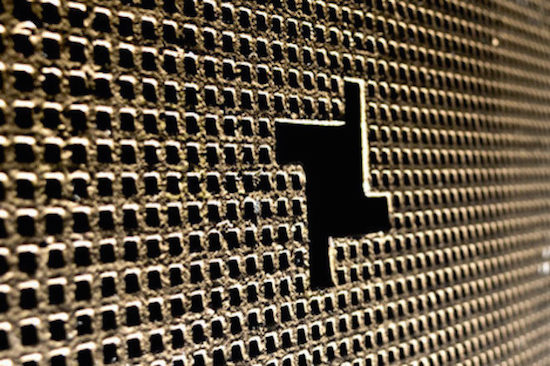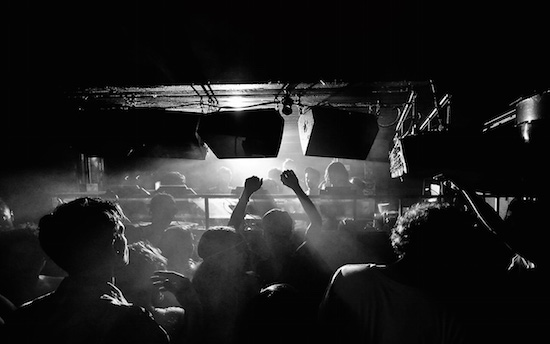The rumours began last week: fabric, Islington Council and the Metropolitan Police were close to reaching a deal that would see the club reopen just over three months after it was forced to close following the drug-related deaths of two 18-year-old men. The appeal hearing had been due to be held at Highbury Magistrates Court from 28th November, but it didn’t quite come to that, as yesterday, a week before it was due to begin, the news began to trickle through that fabric had indeed been saved after a joint agreement was reached between the club, the council and the police.
The tidings were naturally met with elation. In numerous fundraising efforts DJs, fellow club promoters and industry figures have given up their time and waived fees to help the club’s appeal against the revoking of its licence. Thousands of people donated money to the fundraising efforts under the ‘#saveourculture’ banner, supporting not only a beacon of electronic music in London, but also to stand against the kind of precedent that fabric’s closure might set for other clubs in London. Much to celebrate, surely?
Perhaps. For many though, the joy at yesterday’s news was swiftly tempered by the stringent new licensing conditions that have been forced onto the club. That initial sense of victory quickly began to feel much more like a setback against the conservative, puritanical strain of thinking that is killing culture, both club and otherwise, in London and beyond.
Among those new licensing conditions are: "The use of a new I.D. scanning system on entry to the club"; “enhanced searching procedures and controls”; “covert surveillance within the club”; “life-time bans for anyone found in possession of drugs, whether on entry or within the club”; “physical changes to the club, including improved lighting and additional CCTV provision”; and the measure that no persons under the age of 19 be permitted to enter the club during a “Core Club Night”.
There’s no doubt that fabric’s reopening is great news in itself – the 250 people that the club employed before it initially closed its doors in August can hopefully now return to their jobs, and fabric can continue to do the work it did before of putting on some of the finest, established names in electronic music, across various sub-genres, and vitally giving a leg-up to some excellent, less prominent talent in those fields. As Daniel Avery told me last month in an interview about his recent mix compilation, fabric afforded him warm-up slots for his heroes early in his career as well as other career highlights and they “would do that with not just me but loads of people – booking DJs early on and then continuing to give them gigs as they got bigger and more developed. How exciting is that for a club that doesn’t have to do that?”
It’s unclear though just how long fabric can continue to go on doing that under the new conditions set out by Islington Council and the Metropolitan Police. The words “covert surveillance” understandably don’t fill too many people with joy when used in conjunction with the spaces that they traditionally attend to escape the clutches of conformity and routine day-to-day life. The albeit vague term “improved lighting” doesn’t sound like an aid to creating a vibe in a room in which mostly electronic music is played in the dark hours, while regular attendees of the club will also note that searches have always been notoriously tight on entry, so how exactly increased security measures would manifest themselves is anyone’s guess. It seems particularly crass that just under a week after a coroner ruled the death of 18-year-old Ryan Browne in the club was the result of “recreational drug use gone wrong” by a “naive drug user”, the answer seems to be a raising of the minimum age for entry to 19. The details of the report into his death make for heartbreaking reading and the apparent expectation that being just a few months older would solve the issue of naivety, or that 18-year-olds simply wouldn’t use drugs elsewhere, does nothing to solve the issues that led to his death at the club in June.

What most stinks about the deal is the introduction of life-time bans for those found in possession of drugs either outside or within the club. At worst, this measure is actively dangerous to club-goers’ welfare and certainly doesn’t go any way to solving the issues that apparently forced the club’s closure three months ago. Drugs are an ever-present feature in any club scene, particularly when it comes to electronic music, and they will find their way indoors no matter what measures you introduce, short of compulsory strip searches. If a patron of fabric was now to use ecstasy inside the club and become unwell, it’s not beyond imagining that they would either delay seeking very necessary help or simply not seek any help at all for fear of receiving a life-time ban from the club. We can all guess how that might end. It’s also not beyond the realms of possibility that the more inexperienced of drug users could pre-load on drugs before entering the venue for fear of falling victim of these new measures.
Fabric claimed they favoured policies related to the value of properly educating young people about drug use at their original license hearing. It’s a shame therefore to see them accept these new conditions and sign off on a joint statement that uses terms such as “Zero Tolerance”. This merely ensures that a sense of fear is shaken into potential patrons. It’s unclear also just how fabric’s planned drug welfare team can successfully “engage in intervention and outreach inside the club”, as promised, while the threat of life-time bans looms ominously over those whom they presumably intend on reaching out to.
This new agreement seems far short of what fabric’s Cameron Leslie argued for when he made the case for the club at the original license hearing in September. There is no deal on the level of what The Warehouse Project and Manchester police currently have with drug awareness charity The Loop. This encourages a smart approach to drugs including the testing of pills, measures set up at The Warehouse Project after a string of deaths at the club related to the use of PMA sold as ecstasy in 2013. As a result of the new tactic no similar deaths have happened since. Instead, we are left with the usual brand of righteous handwringing and a string of draconian measures.
In light of all this, it’s hard not to see fabric’s reopening as nothing more than a pyrrhic victory. With the greatest respect, it’s also difficult not to feel let down, to feel that the club’s management have merely rolled over and accepted these terms for what might well be short-term gain. How long can it be until the police deem fabric have ‘failed’ even these new strict rules? The club regularly posted transparency statements over the course of the launch of their appeal as the thousands of pounds rolled in from individual donations and special events in the club’s honour. Many donated no doubt because they simply wanted to see their favourite club open again, but many others naturally saw that the closure of fabric set a dangerous precedent for London’s nightlife, legitimising all councils who might want to shut down cultural nightlife. fabric knew this and that is why, in those transparency statements, they said that they would be using their appeal to call on the Home Secretary to review the Licensing Act 2003 and change laws in the interests of clubs across London and the country. They were also lobbying the House of Lords with the same expectations.

Giving in like this just a week before the appeal had been due to start unfortunately makes ‘#saveourculture’ come off more as an exercise in simply saving one business in the firing line. A number of clubs and promoters have united behind fabric in order to support the fight, but the result reflects the pervasive ‘every man for himself’ mentality within the competitive club environment. Other smaller clubs and venues, many faced with closure by landlords or councils, don’t quite have the pedigree or popularity to fight like fabric or raise similar sums. Dalston’s Passing Clouds for example, with its roots in supporting music made by people of colour, has recently led a campaign against forced eviction by its landlord without the kind of support that a club of fabric’s stature can attract. Put simply, it’s hard not to feel let down by the fact that fabric has raised over £300,000 stating that it planned to make active, lasting change for the good of the wider club culture, only to give it up now (at the time of writing) without even having attempted to win their case at the appeals court.
It’s curious to watch on as so many within the underground electronic music ‘community’ toast this hollow victory. Yet it’s symptomatic of so many of the worst aspects that pervade this scene at present. Empty-headed promoters and music fans alike preach values of Peace Love Unity Respect Responsibility (PLURR) that supposedly lie at the heart of this music, while so often failing to even book or support non-white, non-male, non-straight DJs and producers. The foundations of house and techno – the music of queer and black people in cities such as Detroit and Chicago in the 1980s – are often put to use as trivial marketing fodder by people who can barely engage with these very values they namecheck. Meanwhile, clubbing monopolies sweep across London, pushing out independent promoters, driving up booking costs and making the scene blander in their wake.
It’s hard not to question exactly what culture that #saveourculture hashtag is saving. fabric has done its bit to support new talent and its founders have championed a vast array of club-oriented sounds over the years, but this issue is greater than any one venue. Against the homogeneity there are promoters doing their bit to freshen up the scene: new arrival Wild Combination has hosted the likes of DJ Haram, Nidia Minaj and Nkisi and is brought together with unmistakeable passion and a careful curatorial eye. Tropical Waste continues to perfectly find its balance between new and established talent, placing Kode9 on a line-up alongside juke start-up Cõvco and landing UK debuts from the likes of Lotic and Staycore’s Dinamarca. These are just two examples, among many, of what attention to detail can do for a night.
It’s not yet known to what use the £300,000 raised by the campaign to save fabric will now be put. I hope to see it contribute to just what the club said it would fight for, not only to help small promoters like those mentioned above but also to support small, grassroots cultural organisations bearing the brunt of gentrification, Tory austerity and the post-Brexit turmoil. Clubs are, let’s face it, among the last to feel the effects of economic hardship. It’s time to collectively recognise that clubs are part of the wider fabric of society, that the electronic music community has a responsibility to remember its roots and get involved with some of the many important contemporary struggles outside nightlife. This fight has certainly not been won with fabric’s reopening – we must not lose sight of that for a second.


